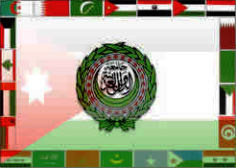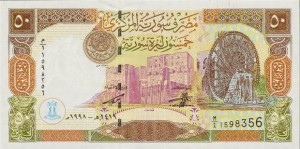
The Arab League said it won’t lift sanctions imposed on Syria, after President Bashar al-Assad’s government demanded the removal of the league’s punitive measures as a condition for admitting observers.
Syria would agree to let in the Arab League observers provided the bloc restored Syrian membership and ended the sanctions in an agreement signed in Damascus, Foreign Minister Walid al-Muallem said in a letter to the group, according to the official Syrian Arab News Agency.
The initiative “will not lead to suspending Arab sanctions on Syria,” Arab League Secretary-General Nabil el-Arabi said, according to Egypt’s state-run Middle East News Agency.
The league on Dec. 3 ordered a freeze on the assets of 19 Syrian officials, a ban on their travel and a reduction in flights to Syria if the government refuses to admit international monitors, release political prisoners and end its crackdown on protests. Assad’s security forces killed 13 people today, Al Arabiya television reported, while Al Jazeera put yesterday’s toll at 28.
Assad faces growing economic and political pressure to end a crackdown against unrest that began in mid-March, inspired by movements that toppled leaders in Tunisia, Egypt and Libya. The violence risks moving Syria closer to a civil war as military personnel defect and take up arms against the government, the United Nations’ top human-rights official said last week.
The Syrian military held war games yesterday in a show of force that included test-firing of missiles and ground-troop operations, the Associated Press said, citing state-run television.
Pound Declines
 The Syrian central bank weakened the currency to 54 per dollar from 50.765 yesterday, SANA reported. The Syrian pound has been loosely pegged to the IMF’s special drawing rights since October 2007.
The Syrian central bank weakened the currency to 54 per dollar from 50.765 yesterday, SANA reported. The Syrian pound has been loosely pegged to the IMF’s special drawing rights since October 2007.
The Central Bank of Syria has spent about $3 billion defending its currency and financing trade since the start of the uprising, Adib Mayaleh, governor of the bank, said last month. Even so, the pound has dropped 13 percent against the dollar this year, according to data compiled by Bloomberg.
Syria’s $60 billion economy, which grew 5.5 percent in 2010, may shrink 2 percent this year, according to the International Monetary Fund, or at least 5 percent, according to the Institute of International Finance. The government expects growth of 1 percent, Finance Minister Mohammad Al-Jleilati said in September.
Punitive Measures
The punitive measures against Syria are the first the Arab League has imposed on a member state since its formation in 1945. The U.S. and the European Union have added to the political and economic pressure by imposing their own sanctions, while the United Nations has been paralyzed since October by Russian and Chinese objections to passing a resolution to condemn the violence.
Syrian Interior Minister Mohamad Ibrahim al-Shaar called the Arab League decisions unfair, SANA reported yesterday. Half of air travel between Syria and Arab League states will be cut starting Dec. 15, the league said.
The UN Human Rights Council’s independent commission of inquiry last week said its probe found that Syrian military and security forces had committed “gross violations of human rights,” adding that it’s “gravely concerned that crimes against humanity have been committed” throughout the country.
The UN says more than 4,000 people have been killed since the start of the protests, while human-rights activists put the figure in excess of 4,500.
Assad, who inherited power from his father in 2000, has moved to ease Syria’s economic isolation and encourage foreign investment. He had encouraged private industry in Syria’s state- dominated economy to provide long-term financing for development and economic reforms.
Banque Saudi Fransi, a Saudi lender part-owned by Credit Agricole SA, said on Nov. 26 that it will sell its 27 percent stake in the Bemo Saudi Fransi Syria bank, citing “the financial risks” in the country.

Leave a Reply
You must be logged in to post a comment.